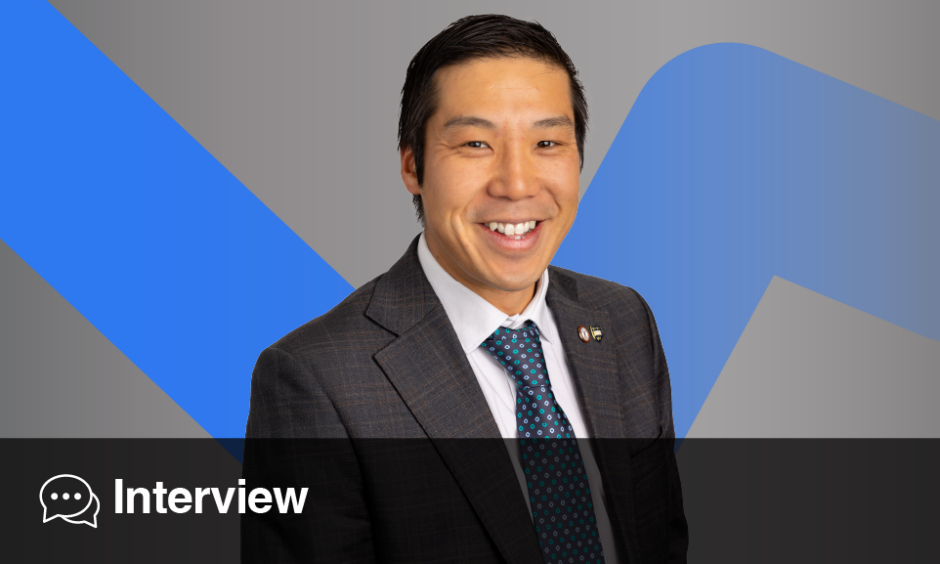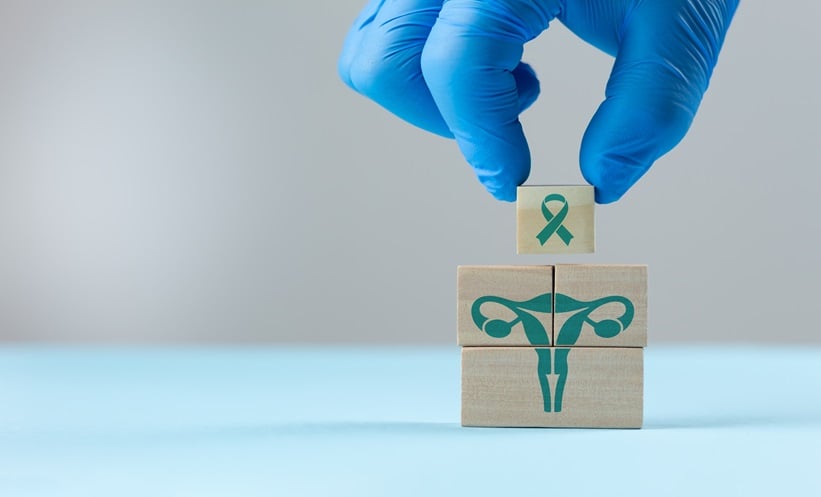Lennard Lee | Associate Professor, University of Oxford; Chief Medical Officer, Ellison Institute of Technology, Oxford, UK
Citation: EMJ. 2025;10[2]:55-58. https://doi.org/10.33590/emj/BNEP1796
![]()
To start off, we would love to hear about what inspired you to complete so much research alongside your clinical work. Was this always your plan?
I’m a clinical academic, which is quite a rare breed of doctor, because what I’m doing, along with other clinical academics, is being present while maintaining a focus on the future. I treat people with what we know works in 2025, and I also try and bring through anything from the future. Doctors are very good at seeing where the new technology is coming from and bringing it to our patients and our shores. That’s why I split my time between research and being an NHS Doctor.
How would you advise doctors who are currently training to find a balance between clinical work and research?
It shouldn’t be a matter of either/or. It should be both. Doctors are fantastic because we’re grounded enough to understand the science, and we also see what is needed. I believe a good doctor, a doctor of the future, is one who can understand what the NHS can do right now and envisage the 5–10 years of a patient’s journey. If we don’t envisage that, our patients will be stuck in the here and now, will still have complications, and will still die early.
A core part of being a doctor should be seeing that 5-year plan and actively trying to achieve change. That will give patients more hope, because we see where the NHS is at the moment, and yet we can envisage a much brighter future with AI, preventative medicines, vaccine technologies, and mRNA. We can put doctors back into the position of feeling empowered about healthcare, so they can bring about change. Healthcare professionals, such as doctors, nurses, and pharmacists, are close enough to see where the issues are and where the solutions are. There’s hope that, in the next few years, healthcare professionals can become that agent of change, which will allow the system to become better, much, much better than it is now. You shouldn’t have to do the same process repeatedly. I believe you should be allowed the freedom to think of what the future could be and how it could be better. That ownership of the healthcare system is important for the future.
A lot of your work now revolves around COVID-19. How did your work and areas of interest change as a result of the COVID-19 pandemic?
Many of us had to make a choice about what we were going to do and how we would contribute. People did fantastic things: volunteering for Lighthouse Laboratories, knitting, making personal protective equipment, donating to help the NHS, etc. It was absolutely wonderful. My way of contributing was to use my research skills and see how we could use data to inform policy. I sat on the Independent Scientific Advisory Group for Emergencies (Independent SAGE), and in my community, everyone wanted to know if we should continue chemotherapy during the pandemic.
In 2022, everyone said and believed that the safest thing to do was to keep everyone out of the hospital, make everyone stay at home, stop people from getting their treatments, and wait it out for a few months. This caused major problems. Every month, chemotherapy was being stopped for many reasons: patients didn’t want it because they thought getting COVID-19 would kill them, hospitals didn’t think they were safe, and doctors thought people should just stay at home. We pulled together a national data programme which linked 86 cancer centres, allowing them to share their data for the first time, and we had it published by May 2020. The answer was very clear: it was completely possible to keep people safe. People weren’t dying of COVID-19 because they were on chemotherapy; that didn’t make any difference at all. The levels of chemotherapy dropped month by month, which was very concerning. People who wanted chemotherapy were getting turned away, but after the evidence came out, no one stopped cancer services without data, because they could say, with confidence, that it was not the chemotherapy that was causing deaths.
The most amazing thing was that the USA was doing something similar. Their consortium was called the COVID-19 and Cancer Consortium (CCC19), while ours was called the UK Coronavirus Cancer Programme (UKCCP), and it showed exactly the same thing. Data changes policy, as it should. Interestingly, the National Institute for Health and Care Excellence (NICE) put out a statement at the start of the pandemic, saying that chemotherapy makes people immunocompromised, which weakens their ability to fight off an infection; therefore, COVID-19 can cause deaths. That type of statement led to unusual practices in stopping cancer care for many people. I understand why people had to make these statements, and yet the reality is, policy should be guided by data. I was one of the doctors who wanted data to change policy, and we got some change, which was fantastic.
The development of the COVID-19 vaccine blazed the trail for recent vaccine development. We’ve heard you refer to personalised cancer vaccines as “science fiction”. Can you describe how they work, and why you describe them as such?
Cancer is different. Everyone with cancer has different types, which appear in different locations, and the genetic mutations are all different. On top of that, our immune systems are also different. Some people can fight a cold better than others. Ideally, you’d want to be able to design a vaccine or treatment that is based on what your immune system can recognise and the abnormalities seen in your cancer. That’s what we call individualised, or personalised, medicine. It’s always had similarities to science fiction. You buy chemotherapy, which is effectively a toxin or poison, and you give it to everyone; it’s all the same drug. The current science fiction approach is using AI and designing the treatment specifically for your immune system and your cancer. The first generation of drugs has gone through and completed Phase III testing, so we’re just waiting for the results now.
No one saw this coming. All the investment that went into vaccine development and mRNA meant it could be made cheaper than ever. It can be given across the population, has a low side effect profile, and can be updated as needed. Everyone recognises that it’s essentially the same vaccine, but they changed a little bit in the middle when updating the variants. Then people said: ‘Why can’t we update that middle bit to target cancer and make a cancer vaccine?’ That’s what’s going on now, and it’s exciting to see so many immune responses against cancer now lasting up to a decade.
These are first-generation products, but they will continue to iterate. As the learning gets better, and as machine AI gets better, I think treatments will continue to get better, but we’re now in this science fiction age of N=1, personalised, individualised therapies. That’s why I like this field. It’s a legacy of everything we’ve gone through, with major technology spheres coming together: AI, genomics, and mRNA, all combining to make this new field rise.
You mentioned some limitations, one of which is the task of making cancer vaccines easily accessible to patients, particularly considering how resource-intensive it would be. Can you see any ways in which we can, in the future, make this more accessible?
The biomedical engineers of the world have perfected the art of making vaccines for millions of people. We have pandemic preparedness, which you can scale up and cover whole countries. However, we now have the opposite problem. Can you scale it down? Can you now make it high throughput while keeping in mind that N=1, so everyone’s going to be different? The greatest minds around the world are thinking about this because it’s the new frontier. It may be a limitation at the moment, but bioengineers are fantastic. Once the first drugs are approved, I think there’ll be massive incentives to try and bring these economies of scale and shrink it all down again. I don’t think it’s an impossible problem. I think many people are currently considering this problem, and though it’ll take a bit more research, we will get there.
You are leading the NHS Cancer Vaccine Launch Pad. Can you describe what this project is, what led to it, and how you planned to achieve its goals?
The first thing we needed to do was to coalesce the idea and keep it simple so that everyone could understand what was happening. We had three goals that we committed to. We wanted to have 10,000 people through trials by 2030, a big but achievable number, considering about 400,000 people are diagnosed a year. We wanted advances across multiple cancer subtypes and, lastly, we wanted to stimulate a global advance. That’s all we had to do. With that in mind, we asked people, ‘Do you agree with that? Do you support it?’ We invited all the leading oncologists, from all the cancer centres, into one room and asked them if this is something they believe in and wanted to champion. That first meeting went very well. Since then, we’ve had regular meetings and cancer vaccine summits, we write papers together, and we form policy reports. The aim here is to try and get the community to champion it themselves.
What we’re seeing now is that together, we have created a community of people who want to see change happen in cancer care. When they open their sites, they let their patients talk to the press about it. This leads to faster opening times, more confidence, more trials, and more input in the UK. More lives are being changed, too.
It was a three-pronged approach: bringing the community together, sustaining the momentum, and maintaining the focus on doing it for our patients. By maintaining those things, we’ve managed to make it a great success. We’re often the top global recruiter, which is quite phenomenal. It’s what the UK does, which shouldn’t be surprising. In 2020, we gave the world a pandemic vaccine. By 2025, we would have given the world a cancer vaccine.
Do you see the USA’s ‘war on vaccines’ impacting this work in any way?
We need to be very careful in this space, because two nations gave the world vaccine technology, which changed the world in 2020: the USA and the UK. We had our Vaccine Taskforce, they had Operation Warp Speed. Two of the leading technology providers in the pharmaceutical space worked hard and gave the world this amazing mRNA technology.
I think it’s right that the USA public questions the risks versus the benefits in many age groups. It’s good to have dialogue, and yet, like all medicines, it should always be our personal choice at the end of the day. The tricky thing is that signals may be misinterpreted. If an anti-vax response means that cancer therapies are stopped, that’s going to cause issues. If that leads USA funders to stop financing research in this space, it may inadvertently be sending signals about cancer therapies. If the market doesn’t open, and healthcare systems don’t want to engage in this, then it will be a shame. Everything that’s been achieved is potentially at risk, including the investment in advancing this field and in bringing together AI and genomics. I don’t know whether other nations would have enough headway, as everyone benefits when the whole world comes together to commandeer the charge. The drugs that come out of it, which are so close to being approved and licensed, are going to need the support of the global community. If one part of the world decides not to partake, no matter how effective the drugs may be, it will likely cause major issues. All nations need to stand together, because that’s how cancer research is expedited.
The NHS-GALLERI trial is ongoing. What are your expectations for the results of the trial, and how do you predict the rollout of a multi-cancer early detection tool could impact UK healthcare?
There is a vision that, if people do a blood test every year, you could pick up a cancer from a blood test alone, and it could be an early detection across multiple cancer subtypes. You wouldn’t have to wait until you have symptoms like pain, bleeding, vomiting, or diarrhoea. This could be possible because sequencing is getting cheaper, and the public doesn’t mind giving a blood test, because it’s an easy thing to do. It uses a similar sort of technology as AI and genomics, but this time, it’s using blood tests alone. This trial was one of the world’s biggest, with 140,000 people across the NHS, and it’s now complete and in the follow-up stage. There are many other trials in this space too. If this is proven effective, and if it’s sensitive enough, there is a future where people won’t have to have cameras put in their bodies, and they won’t need to go through all of these screening methods. It could be much easier, with just a simple blood draw. However, we don’t know the results at the moment.
The UK once again led one of the biggest trials, showing our capabilities, opening up space, and showing the strength of the NHS. The results will need to be tested, but this could be a new form of technology. We may be in a world in which blood tests pick up your cancer earlier and, if caught early and cut out, vaccines hopefully stop it from coming back and give you decades of protection. If we ever get to that stage, it would be amazing.








